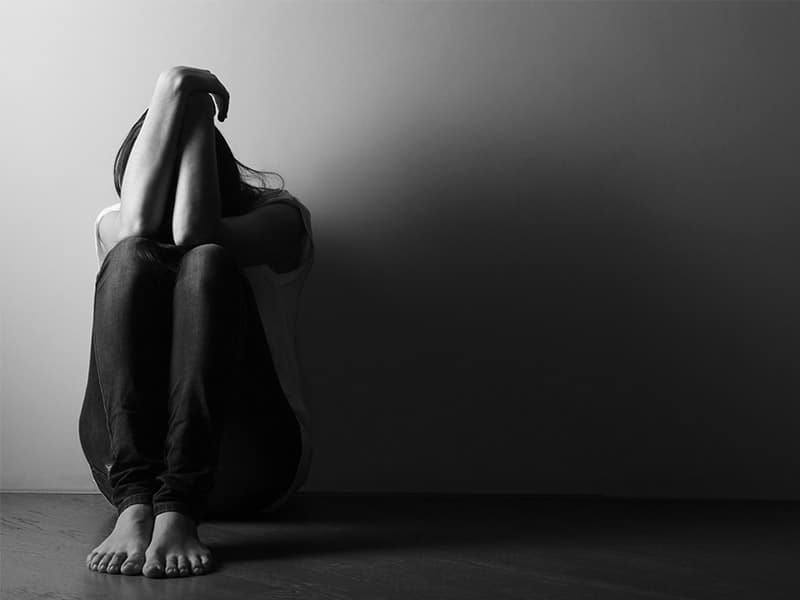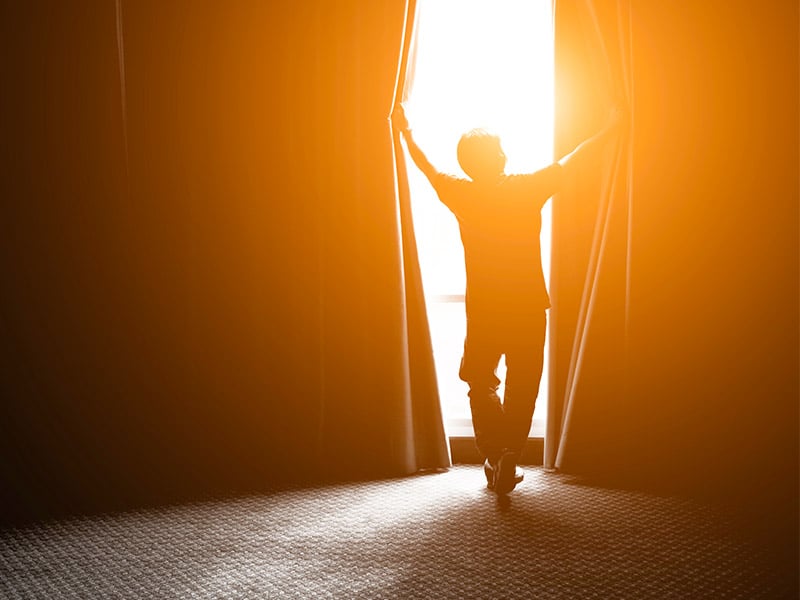If you’re depressed or know somebody who is, read on
Kate Spade. Anthony Bourdain. Heart wrenching headlines about famous people whose lives ended tragically too soon, headlines that really can’t touch the depths of the despair they must have felt – or the heartbreak their suicides have left behind.
It’s a topic I know all too well. In college, my best friend shot herself in the head. It’s been 33 years and I still think about her almost every day. I remember walking into the room and my roommate’s strange face; the screams and heaving tears from my gut; the open casket funeral – and the depression it set off for me, a black hole I myself battled for at least 15 years. I was sad about her, yes, but my depression went beyond grief and was despite having a great relationship, amazing friends and a big, glamorous career in television. I was battling my own personal demons, exacerbated by a genetic predisposition towards depression. I never attempted suicide, but I understood those who did. I was low, really low, though most who knew me would never have guessed.
And it was pure hell.
But here’s the thing: I found a way out of my hole. I’m happy. Really. Truly. I’m genuinely happy. I no longer have days when I can’t get up off the bathroom floor and I can’t imagine I’ll ever go back there again. It’s been almost two decades since I walked around with a black cloud over my head. I truly believe I’ve kicked depression’s big, miserable butt.
So what changed? I can’t quite tell you. There’s no magic pill or life event that flipped the switch. It’s not like my depression just went away overnight either, rather gradually and surely it got better. I went to therapy. I made some life changes. I made better choices. I learned to look at life a little differently.
And I believe – no, I know – that if I can get up off that floor, so can anybody else. If you are down, don’t give up. Life can get better – not just better, but good, downright great even.
I also know that I don’t ever want anybody to hear those horrible words I heard, to feel the loss of suicide. There are so many feelings that come with surviving suicide. Yes, there’s grief, but also regret and anger all mixed up together and that cocktail of emotion never truly leaves you. I still really miss my friend. God, how I loved her – and, yes, I’m still mad at her for leaving me that way even though I understand her pain. And tragically, she’s not the only one I’ve lost to suicide, but she was the closest to my heart. I miss them all.
The facts are startling. In Singapore, suicide is the leading cause of death for those aged 10 to 29, with 2.4 times more deaths from suicide than traffic accidents. For every suicide, at least six survivors are left behind.
Warning signs
What’s making our young people so sad? Each depression is unique, but the risk factors include mental health conditions, serious health problems, tough life events such as divorce, job loss or death of a loved one, and prolonged stress factors such as bullying, abuse and unemployment. If you know somebody in one of these situations, pay attention right here, right now. Most give clues before an attempt. And most attempts are really a cry for help. Depressed people generally want to get better, but just don’t know how to on their own.
“I truly believe I’ve kicked depression’s big, miserable butt”
Listen to what they say. “My family will be better off without me”; “My life is meaningless”; “I should just kill myself”; all are statements that should set off alarm bells.
If you see your loved one giving away treasured possessions or saying goodbye, take heed. Are they researching suicide methods? Leaving suicide notes? These are all big warning signs.
A person’s mood is also key. Any kind of emotional outburst is a sign that something isn’t right. Have they lost interest in things? Find out why.
Seeking help
Dealing with somebody on the brink of suicide is not a time to pussyfoot around. Intervene. Ask what’s wrong. Try to get them into counselling. Suicide is preventable. But with that, be careful not to lose yourself to save them. Reach out to Samaritans Hong Kong, an amazing organisation that can help find a safe space for those struggling or for somebody who is trying to help somebody they love. If you are struggling, reach out to them. Do it now. Right now.
And remember: there’s hope. There really, truly is.
If you or someone you know is experiencing depression, Samaritans Hong Kong has a 24-hour hotline on 2896 0000.
See more in our Health & Fitness section
Subscribe to Expat Living Magazine now so you never miss an issue.







